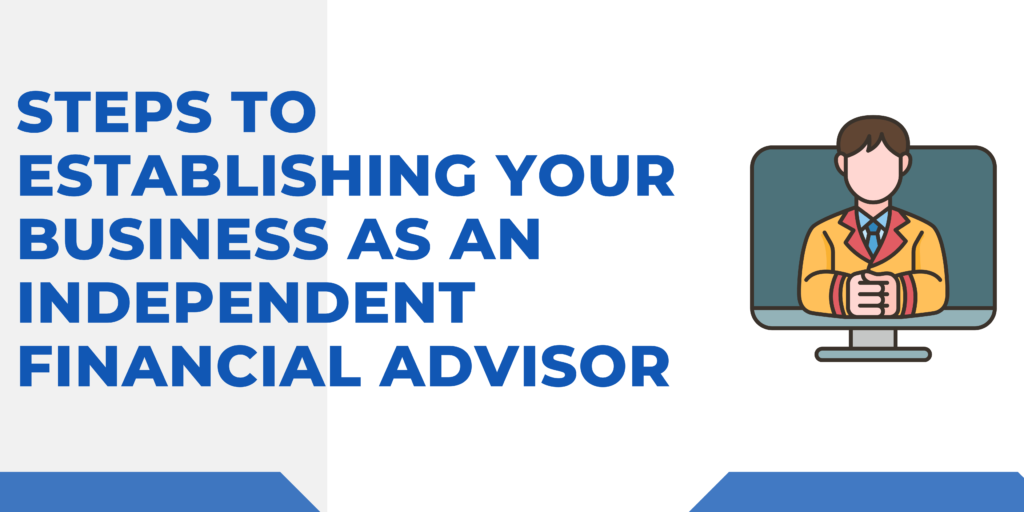Perhaps you’ve been building your career in the financial sector, and you’re interested in working as an advisor – but you’re not keen on the idea of becoming part of a larger firm that requires you to promote certain products to your clients. Instead, you’d like to work independently. If you’re passionate about this career path, here are a few guidelines presented by List My Business to help you get started.

Obtain the Appropriate Licenses
Before you begin working with clients, you’ll need to secure any required licensing for the services you plan to provide. Career Trend states that if you simply plan to give clients financial recommendations and general guidance, you don’t technically need any specific licenses or certifications – but if you’ll be handling plan implementation, you will. Depending on your offerings, you may need to become a Certified Financial Planner, get a registered representative license from the Financial Industry Regulatory Authority, or become a Registered Investment Advisor.
Budgeting and Funding
Even if you plan to offer advising services remotely, without renting an office location, you’ll have some startup costs to cover. This might include software fees, marketing costs, filing fees, expenses for technical hardware, and other necessary supplies. You can create a comprehensive business budget to outline all of these costs. If you don’t have enough in personal savings to cover the overall expense, you may need to apply for outside funding in the form of grants or a business line of credit.
Register Your Business
Before you begin taking on clients, you’ll want to choose your business structure and register your company in your state. You may want to form a sole proprietorship. It’s easy and convenient to file for this status. Furthermore, you’ll be reporting all of your business income and deducting any losses from your personal tax return, which means that you’ll likely enjoy the lowest tax rates with this business structure.
Choose Accounting Software
As a financial advisor, you already know the importance of using accounting software to manage your company’s finances. Now, it’s time to choose the right program for your own business! With cloud-based bookkeeping software, you’ll be able to store and organize all of your company’s receipts, which you can hand over to your accountant when it’s time to file your taxes – this will help you stay compliant and claim all of your deductions. You’ll also be able to closely monitor your cash flow to evaluate the health of your business.
If you plan to hire employees or contractors, set up your payroll system early on. Look for accounting software that includes this capability or choose a payroll tool that integrates with your bookkeeping system.
Marketing Your Practice
Finding your very first clients can be challenging! Naturally, you’ll want to let your loved ones know that you’re offering your services as an independent advisor so that you can take advantage of word-of-mouth references. But you’ll also want to implement a basic marketing strategy to draw in more people.
Bankbound recommends establishing a clear brand to convey your values to potential clients, creating a website with a blog for content marketing purposes, engaging in social media marketing to connect with younger audiences, and even starting an email newsletter to provide your subscribers with industry updates, grounded perspectives on money management, and more. If you don’t have the time to personally focus on marketing, you may want to hire a marketing specialist to handle it for you.
Working as an independent financial advisor can be deeply fulfilling. You’ll be able to customize your services for clients and see your solutions implemented for their benefit. With these tips, you’ll feel excited and self-assured as you launch your career as an independent advisor.